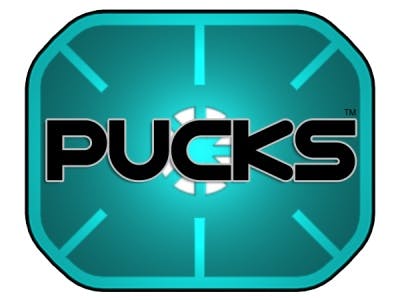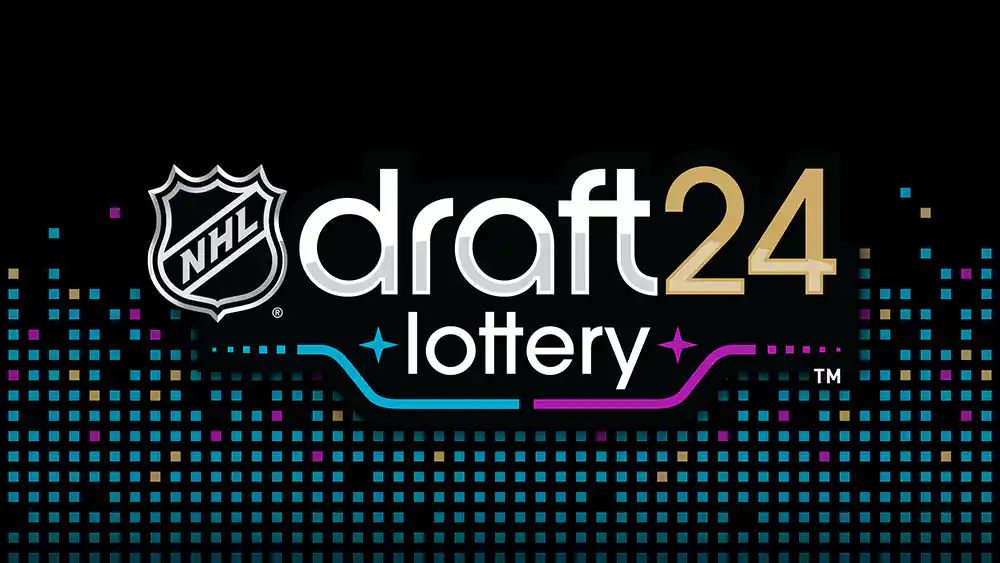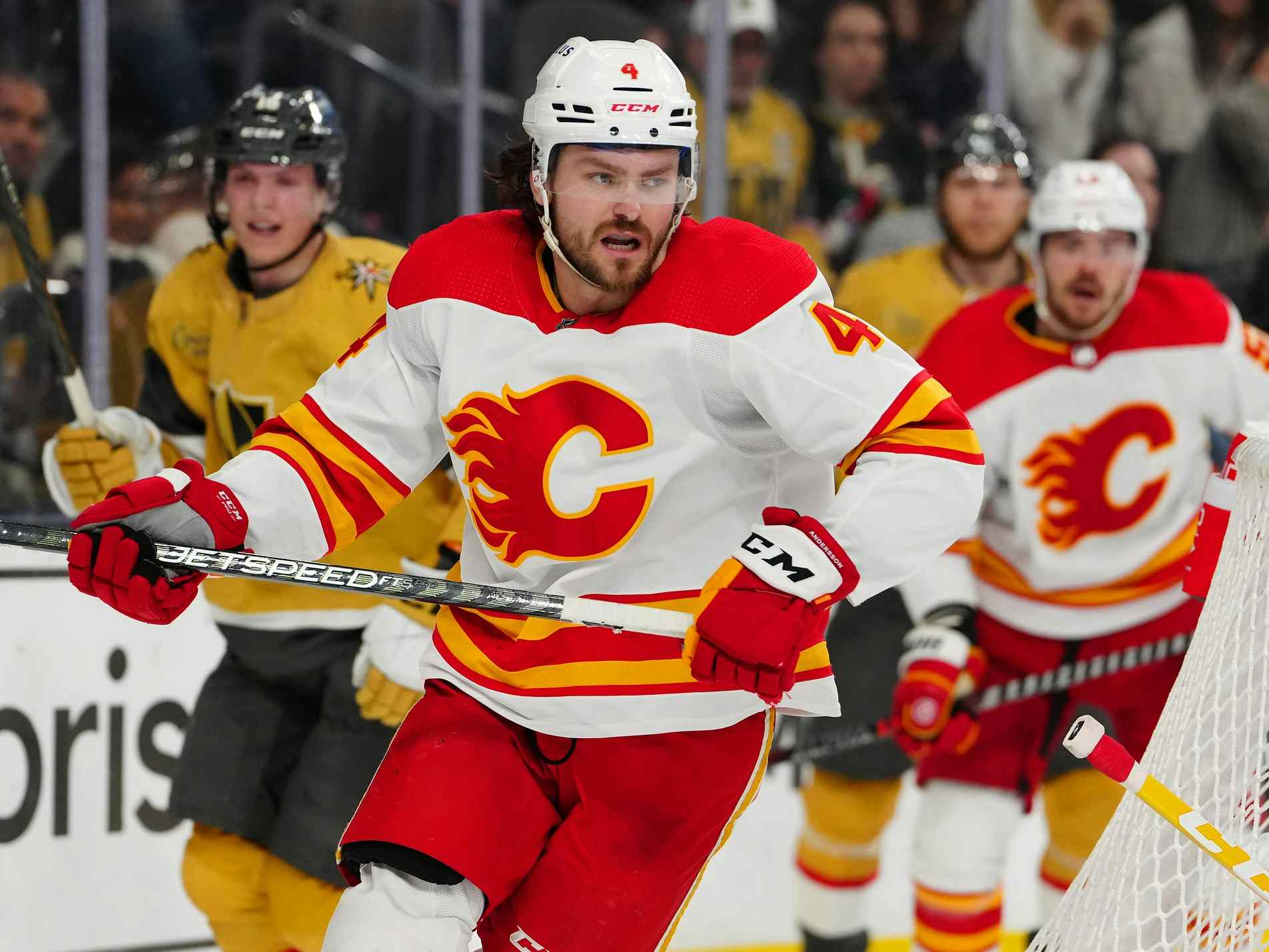Bob Hartley Interview
By MC Hockey
11 years agoGood fortune continues as our MC Hockey (Marty Clarke) asked Flames Head Coach Bob Hartley for an interview after meeting him at the Kidsport Volunteer breakfast a couple weeks back. Via the kind VP of Communications Peter Hanlon at the Flames, it was arranged and done on Friday November 30.
Big thanks to Mr. Hartley and Mr. Hanlon for their time, graciousness and honesty. And as a bonus I met Canadian figure-skating gold medalist David Pelletier during my visit. During my meeting with Coach Hartley, a number of issues were covered and my transcript with appropriate edits are below with questions and answers getting more interesting and insightful as we went along.
Marty Clarke: How has the adjustment to buying a home and living in Calgary gone for you and your wife? Have you been able to enjoy what the city offers?
Bob Hartley: We have really enjoyed Calgary so far. You can tell it’s a sports-minded commmunity and that people are passionate about sport and hockey. There are great people here in the City and with the Flames organization and we have great players on the team who have become ambassadors for the sport and recognized in the city, so that is enjoyable. You can tell hockey is important here as fans want to meet me and I have been to many community events including meeting over 150 coaches and minor hockey clinic we conducted recently.
MC: So I met you at one charitable event and you mentioned the hockey clinics but what other community and charitable work have you been doing?
BH: I have been invited to luncheons for community services such as with the Rotary Clubs, been to many minor hockey practices. I have given a few coaching clinics to several organizations, we were at the Children’s Hospital to pay in the Wheelchair hockey game.
Next week we are looking forward (to visiting sick children) with the hospital visit so that is always very special. All kinds of things. I have been to sponsor lunches, and more. We are trying to make the best of our situation. And obviously hockey-wise, as you can see (points to whiteboard in his office) all our practices are ready to go, so we are all ready to go, we’re good to go.
MC: You have made some interesting decisions in your coaching career like coming here versus going to the Montreal Canadiens and in Switzerland, choosing Zurich versus the French-speaking town (in the Swiss league). So you are sort of like the guy who can be seen as "taking the road less travelled".
BH: Well, obviously with Friborg and Zurich, there were lots of unknowns and questions marks on that one. But for Calgary and Montreal, obviously I was talking to the two teams but at no point did I think I had either job. You have to show respect to everyone involved.
With Calgary, I got here on Monday afternoon and by Tuesday morning my decision was set. One dinner with the owners and Ken and Jay and they convinced me that they wanted me, that I was their guy, and that spoke volumes to me. I had a scheduled meeting wtih Montreal on the Friday. By Tuesday morning our deal was set, but we had to get dealing with Zurich on my release and that took quite a bit of town. We finished this early on Thursday morning, Jay called the press conference and I called Marc Bergevin and told him I would obviously not be at the meeting on Friday morning and thanked him for the opportunity.
You know I have always trusted my instincts, I took some bold decisions in my life…..many people may say they were crazy risks (laughs). I remember the day I quit my job (editor note: in his hometown where he was well-established) at the windshield factor, my co-workers could not believe that I would quit a job that was good money and good working environment and a good company to coach a junior hockey team that had 5-6 years of miseries. But I had the support of my wife, I had two young kids, and I felt that is what I wanted to do.
These days when I give motivational speeches to employees or company leaders, I say that sometimes you have to go outside your boundaries. You have to jump over that fence, but I always felt very comfortable (in my jobs) because I worked with some good people. And that has been the key in my career because I was always around great individuals, whether it was coaches, management, assistant coaches, trainers…I have always felt very fortunate to be have good people. You know, talent will carry you for so far but the values of the people around that should make the difference.
MC: So you talked to me about Chris Snow, and yourself, and the whole team being big on the video systems and how you an break down a player’s game, shifts, month or whole season. What else can it do for you in terms of helping with coaching? (Editor Note: The Pucks system used by the Flames is purchased by a number of NHL teams so this is nothing secret here)
BH: Well, it can do everything, I have it right here, we just had a meeting awhile ago on it. You know that Jamie Pringle is our senior video coach, and he is unbelievable. You know (for) Chris, it is going to be his first year with the coaching staff so he is going to support Jamie, will kind of be an assistant to Jaime.
The system does pre-scout video, creating reports on opposition, assist with post-game video breakdowns, analyze scoring chances we may have or give, special teams stuff, bank individual player clips for teaching and motivational purposes, prepare opposition roster tendencies, be available for player requests. Some players will come to us and ask "can I see my last shifts in the last two periods", stuff like that.

The system can create video playlists of shootouts, goals against on opposition goalies, stuff like this…working with Clint (Malarchuk, Flames goalie coach) on any goalie video playlists and tendency reports, etc. We can add any information on opposition team tendency reports, and banking of individual player clips just like what Jamie will do. Obviously with video today, you can keep so much good stuff available and in a second can have access to it to find out stuff about other teams and your own team.
MC: So during the upcoming season, and hopefully there is one (laugh), many fans wonder about newer players, say Sven Baetschi or Roman Cervenka – assuming they make the team – so say they are doing most of the scoring or creating the most scoring chances, do they get a chance to move to the first line?
BH: No one (or their job) in this business is set in stone, the bottom line is we missed the playoffs for the last three years and if my memory is good, have not passed the first round since 2004. So I think that we have to put our trust in everyone and obviously create the chemistry. And if it’s by adding new blood, or maybe spreading the offensive power over three different lines or stacking two really very sold defensive lines, that is something we will analyze that along the way.
One thing is for sure is that very rarely will keep players on the same line for the whole season. You have injuries, you have slumps, and obviously we are talking about a full season of 82 games. It’s a long marathon, so everyone will have ups and downs, and obviously we want to minimize the downs and maximize the ups. But at the same time, the best reward for players is ice time, I have learned this over a very long, long time. So you reward the guys who are committed to the team, the guys who bring productivity to the organization, and more importantly it is all about wins.
We need to create an identity, to sell the culture that is going to bring us wins, and not…not just to bring us to the playoffs. My goal is not to bring a team to the playoffs. Obviously being part of the playoffs is part of being successful, I have much bigger visions than just being in the playoffs and those are expectations that I will share with the players.
MC: With Flamesnation.ca, a lot of folks there and associated sites, and quite a lot of other hockey sites look at things like Moneyball and advanced statistics in baseball and of course a lot of them were created in hockey, including going back to a guy like Jim Corsi who was an assistant coach in Buffalo. Are the Flames taking a hard look at this area, are you able to say?
BH: Personally I never go on blogs, not a big computer guy. I never look at salaries. I have no aspirations of being a general manager or anything like that, I want to coach. For me there is no dollar signs on the towels, no dollar signs on their jerseys, I will make the decisions based on who is going to make us win. For me, that is my only priority.
MC: Some of the statistics are like a proxy for how many scoring chances do you create, etc.
BH: Personally I never go on money, I never discuss money with players, that is the second floor (GM and scouting offices). I know what you mean, since the baseball thing and Oakland. But I do know what you mean, but for me, the only things I look at is the scoreboard and the standings.
MC: You have often said the Flames will be more up tempo, can you expand on that regarding forechecking or defensive-zone break-outs?
BH: Personally I don’t believe in standing on the ice, or jamming the blueline, waiting. I have always told my players that hockey has to be played on your toes. I think that when you tell players to have a defense-mode, it is just human nature to get on your heels. You know I still want us to be a smart hockey team. For us to be up-tempo, I don’t want us to give seven 2-on-1s and four 3-on-2s per game, that is far from my objective. We want a team that comes together with the identity we create for ourselves.
Number one, I want us to be the best conditioned team in the NHL. I want the Calgary Flames to be a blue-collar team. And if you go out there (as a player), and if we need to block a shot, we need to take a bodycheck, we need to give a bodycheck, or drive the net, that is something I want EVERYONE to be ready to do this. I don’t want this to be a job of 2 or 3 players to block a shot, and driving the net should not be the job of 2 or 3 other guys, or I don’t forecheck because I am a smaller player, and I don’t backcheck because I am a goal-scorer, those rules do not exist under this roof. Everyone will expected to do every role that is part of being a hockey player.
MC: How do you expect to handle succession planning as say Iginla, Kiprusoff, even a hard-nosed defensive-player like Cory Sarich get older?
BH: You know like in Colorado, I had Ray Bourque and he was 40 years old and playing 25 minutes a night for us. For me, age has nothing to do with it. You asked me before that if a 20-year old plays better than a 35-year old, yes, the 20-year old is going to play. But I am not taking a guy at 35 and say I am giving you less ice because you are 35. No, if he is playing well (he plays). You know ice time is the best reward for a player and we are going to go by merit. Age, color, language, nationality, I don’t care one bit about these things.
MC: And you hope that players like Iginla would mentor players to be (the next) captain?
BH: I think that is normal, that with leadership some are born to be leaders, over time some will get better and some want no part of leadership, that is just not part of who they are. And that’s OK. Successful companies have the same kind of people as us, so I just think it is a reflection of society.
But with the meetings I have had over the summer that the people we have a very genuine people, they want to do good…I had many questions for them and they were just unbelievable. I think it is normally, just a fact of having a new coach coming in, especially with Jacques, with Marty, and while Clint is back and Jamie is back it is almost a new coaching staff. It is our chance to bring in our new identity, our own culture, to set new expectations, and that is why we are here…that is why they brought us here.
MC: Some players will have been playing during the lockout, like Cervenka, so how will you handle players who have quite different preparation levels, so how will you deal with that?
BH: That is something we have no control over right now. We will evaluate that from the minute we get on the ice. As soon as the work stoppage is over, the day that they tell us we can start training camp, we will be very glad to do it.
MC: Is the lockout changing your preparation for the season at all (laugh)? I guess just delaying it…
BH: I think that it’s going to be changing for everyone. The tough thing is we don’t know what it is going to be changing. If you look (points to whiteboard in his office), we have 1, 2, 3, 4, 5, 6, 7 days planned, but I also have a 4-day plan, 5-day plan, 6-day plan, and the 7-day plan. If we go 4 days, we need to crunch everything in. I cannot after game 1 if we go oh-for-6 on the powerplay that we did not have time to practice it.
But every team is in the same situation, we are all on even ground. As coaches we are here obviously to get wins. But I see our job as promoters of our sport, so I am not a guy to make excuses. We are in a tough business, it’s tough competition, we have to find ways to win, you always have to adjust. But whether the season comes out of a work stoppage or a regular 82-game season, you always have to adjust, you always have the unknown, the intangibles, so if you are not ready, you are not there. So you have to create that winning edge, it’s not only about hockey for me, it’s about everything. You can do so much with X’s and O’s but at some point, it becomes the famous mental battle with your team but also within yourself.
MC: How do you feel your people skills with coaching, when you need to be critical of a player, how do you think your skills will help there?
BH: The beauty of coaching is that you are working with human beings. I feel very comfortable with my staff that we can make a difference, that we can make a difference on the ice. Or….I should not say we can make a difference on the ice, we can HELP make a difference. Obviously I don’t expect to score goals. And Marty Gelinas, well he could probably still score goals, but he wants to coach now.
I think that it’s all about the presentation you put out there, the expectations you create, the mindset, it’s something you need to build. You take it one day at a time, there are peaks and valleys, you don’t want the valleys to be too deep and and at the same time you want to keep a level mind-set.
MC: Flames talk on the radio quite a bit about drafting players of exceptional character, with Sven Baertschi being a good example, he seems very hard-working and loves the game. Is there a way to measure that, and how do you decide when character win out over pure talent?
BH: That’s a good question for our scouting staff. For us, in the NHL here in Calgary, we are very fortunate to have the Hitmen in the same rink. On a day off we can come in and see them play, see them practice. But I remember that when I was in Atlanta or in Colorado, it’s pretty tough to do that. Plus kids they change alot, we see our players change a lot at 20, 22, 25 years old, imagine a 16, 17, 18 year old kid, you see him in October and you see him in January and it’s a world of difference.
Every scouting staff in the NHL, they have their own ways of rating players or evaluating talent, or what you are talking about, the skill set, the character, the toughness, the size…those guys (the scouting team)…they do it. And we go and support them on draft day but we don’t know those kids. It’s up to the scouts.
MC: How do you feel your relationship with Jay Feaster will help you be a good coach here?

BH: Well you always need that but it’s not only my relationship with Jay, I think it’s the entire relationship (structure that we have that matters). We are coaching a team, but more importantly we need to show the players that we are ALSO a team, the coaches, and the management, we are talking about the management. We are a big team that consists of a number of smaller teams. I don’t consider myself a one-man show, that’s why I went to get those people (assistant coaches).
I am a guy that likes to delegate a lot of responsibilities, and (it’s important) I make sure we are on all the same page. Because at the end of the day, we all win or we all lose, it’s not about what I decide or what I bring, I don’t think that has a huge impact versus what we see as an organization…and where we go from there. It comes down to our identity, our cuture, and to create that edge that I really believe in (that will make us successful).
MC: How did your meetings with the Abbotsford coaches change their approach or did it at all?
BH: No, I don’t think so. We had two days of great meetings in Victoria. We all went there and it was very good because we were able to share a bit of our views. And that was basically what we are looking for…what we (the Flames) need to do (in conjunction with them). They have a job to do and we have a job to do…thirty NHL teams go through the same thing. Mainly we wanted to share information, it’s not about me going there and saying hey (do this or do that). My responsibility is to make sure we as the Calgary Flames are progressing as an organization, that we put a good product on the ice that the fans will enjoy, and that we create that culture where we all understand that we are all sharing that ultimate goal.
(Thanks again to Bob Hartley for donating his time as well as the Flames organization for making Bob available)
Recent articles from MC Hockey




